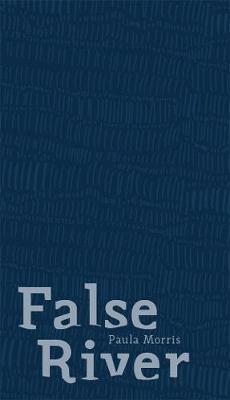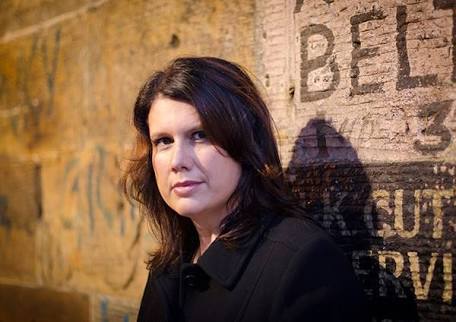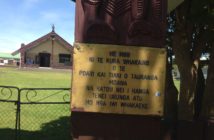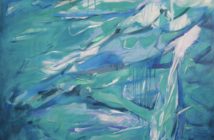Paula Morris will be appearing at the Tauranga Arts Festival next weekend, chairing some of the discussions between writers and running the Fiction Boot Camp on Sunday. Paula herself began taking fiction classes in New York 20 years ago and went on to take an MA in creative writing under Bill Manhire at Victoria University in Wellington. She then went on to teach at universities in New Orleans in the USA and Sterling and Sheffield in the UK. As well as writing 12 books and editing others, she is currently the convener of the Master of Creative Writing course at Auckland University. I managed to ask her a few questions between preparations and attending a writers conference in South Africa.
Paula has a new book, False River, coming out at the end of October and I asked her to tell me a little bit about it.
PM. False River is an unusual book, in that it’s a collection of both short stories and essays, all around the theme of lying and secret histories. Some of the essays explore the ‘real’ lives – or secret lives – of some well-known people, like the outlaw Billy the Kid, the blues musician Robert Johnson, and writer Laura Ingalls Wilder of Little House on the Prairie fame. The final essay, ‘City to be Abandoned’, chronicles my evacuation experience in Louisiana during Hurricane Katrina, and reveals the true stories behind the fiction of ‘False River’, the collection’s opening story.

Paula’s new book False River
Paula confirmed that there will be some copies on sale at the festival.
I asked why publishers seem to have no liking for short story collections. Is the short story a dead art or are shorts becoming the most accessible forms of literature?
PM. More publishers would publish short story collections and anthologies if more people bought them. There are some excellent anthologies out at the moment, including Black Marks on the White Page, edited by Witi Ihimaera and Tina Makereti. If you’re a writer of short stories, and enter your own work in contests, say, then you should support the art form by buying collections and anthologies, or ordering them at your local library. If we want an art form to continue, we must support it.
How do you find time to write a book as well as teaching the Creative Writing Masters Course at the University of Auckland? Do you have to plan time for your own writing or is it a case of that being what you enjoy the most?
PM. This year has been very busy and stressful, and it was hard to get the book finished with all my other commitments, including teaching at the University and in schools. I write when I can, where I can – in airports, other people’s houses, cafés, our dining table. If you wait for time to write, you’ll never write anything.
What is the difference between being a writer and teaching writing to students? Are they the same skills or quite different ones?
PM. Not all writers can teach and not all teachers can write. They’re separate vocations, though sometimes they intersect. Some writers have no business teaching, because they can only communicate the way they write themselves. You have to be able to work with writers of different styles and genres.
Paula has published short pieces in a number of places, including her website and on her blog called Trendy but Casual. These are a great read, and I was particularly touched by her very moving memorials to her parents. Thank you for sharing those. I asked if it was hard to find the right words for those pieces.
PM. I published those eulogies on my blog as tributes to my parents, who were very proud of my writing and very supportive. They might help other people who have to write eulogies about family members – lots of people reach the site through basic Google searches, so clearly there’s a desire to go beyond sentimental generalities.
A few of the essays in False River are about my parents, as different sorts of tributes. ‘Women, Still Talking’ is about my mother. She’s probably talking right now, in heaven.

Paula’s novel Rangatira
I came of age as a writer living overseas. My first work as an adult was written in New York City, when I started taking evening classes at the West Side Y. I wrote Rangatira when I lived in Glasgow. Your work’s inside you, wherever you go.
Paula is appearing several times at the Tauranga festival – once in a session called Our Place to Stand and also to teach a Fiction Boot Camp. I asked her about these and what she is looking forward to most at the festival?
PM. I think I’m appearing four times altogether, because I’m chairing two sessions as well. I’m looking forward to teaching the fiction workshop, because I really enjoy teaching and encouraging writers to develop skills and insights about their own work and process. At Our Place to Stand I get to tell a story, and I love telling stories.
Paula has spent a good deal of time travelling and undertaking residences around the world, so I asked if she is back “Home” for good, or if she still has the urge to travel?
PM. I’m just back from a festival in South Africa, and head off in just over a month for another writing residency in Latvia. So travelling is still very much part of my life. It’s good to be home in Auckland, even though both my parents are gone now, and I returned to be with them. I’m embroiled in numerous projects here, including the Academy of NZ Literature (www.anzliterature.com).
And one last question. I wanted to know which is Paula’s favourite book or work of literature.
PM. If I had to pick a Desert Island book, I’d make up my own anthology of story writers I love – Chekhov, Mansfield, Gogol, James Salter, William Trevor, Alice Munro, Grace Paley, Owen Marshall, Deborah Eisenberg, Denis Johnson, Ellen Gilchrist, George Saunders, Junot Diaz, Charles D’Ambrosio, Flannery O’Connor, Bruno Schulz … and so on. Then I’d have something for every mood and every season and every hour of the
 Marcus Hobson is the ARTbop Contributions Editor. He is a writer and reviewer, as well as a passionate book collector. Many of his stories feature themes of art and artists and he is married to an aspiring painter. Marcus lives at the foot of the Kaimai Ranges near to Katikati.
Marcus Hobson is the ARTbop Contributions Editor. He is a writer and reviewer, as well as a passionate book collector. Many of his stories feature themes of art and artists and he is married to an aspiring painter. Marcus lives at the foot of the Kaimai Ranges near to Katikati.
A BIG SHOUT OUT TO LOCAL ARTISTS & ARTISANS
AFFORDABLE ART & ARTISAN FAIR
ARTbop and The Black Sheep Bar & Grill have gotten together to create the ‘Affordable Art & Artisan Fair’ which will take place on the last Sunday of every month excluding December starting on the 26th November and run from 11am – 3pm.
This event will be open to local artists and artisans who produce high quality, original, handmade pieces. We are looking for a commitment to four fairs (Nov, Jan, Feb & March) at a cost of $40 ($10 per fair). The great news is there will be no commission.
The Black Sheep has a large outdoor area ideal for setting up trestle tables. Much of it is under cover. There is also a big area where marquees can be set up. Although the venue is large there will be a selection process if there isn’t room for everyone.
ARTbop will be conducting a widespread advertising campaign and this, along with the good food at Black Sheep and the wonderful ambience of the venue, are sure to make this fair a huge ongoing success. Don’t miss your chance to be a part of it. Email your details including your website to Birgitt at aaafair17@gmail.com





